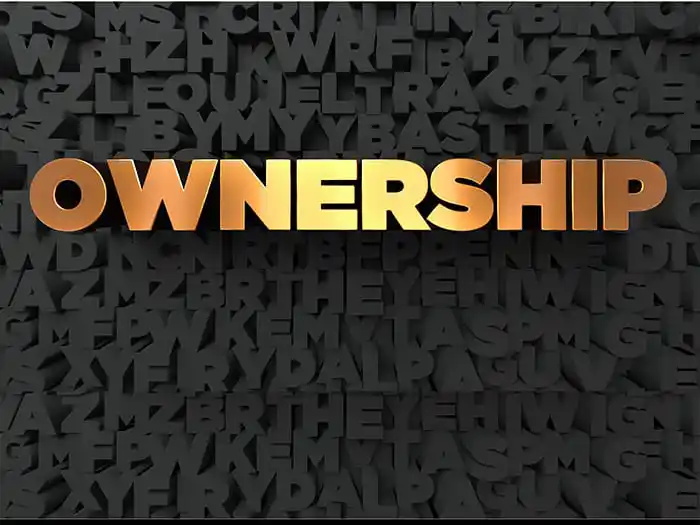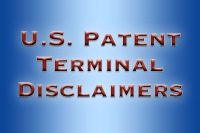Ownership By A Business Of Copyrights

Introduction
Under U.S. Law there are two ways that a business which is a corporation or limited liability company can come to own the copyrights in a work of authorship (e.g., a video, photograph, software code, artistic design, etc). The first way is to be legally recognized as being the author of the work of authorship (hereinafter the “work”). The second way is to receive all of the copyrights by way of a written assignment agreement from the person who is the author of the work.
The Risks Of Acquiring Copyright By Assignment
While it is very common for businesses to receive copyrights by license or assignment, this comes with a built in risk. Specifically, after 35 years from the date of the copyright license or assignment the original author can simply take back any rights granted under a process called termination. The author need only timely provide the business with a required form of notice and record it with the U.S. Copyright Office. The copyrights will then revert back to the granting author. See 17 U.S.C. § 203.
The termination of a license or assignment of copyrights after 35 years may not be that common, but it does happen, and can have potentially significant economic consequences for a business. A recent example of this is the case of Shosh Yonay and Yuval Yonay v. Paramount Pictures Corporation1, which involves the 2022 movie Top Gun: Maverick (hereinafter the “Top Gun case”).
According to the allegations made in the Top Gun case, the original 1986 Top Gun Movie was based on a 1983 story authored and published by Ehud Yonay about the U.S. Navy’s Top Gun fighter pilot school. Shortly after publication in 1983 Paramount secured from Ehud the exclusive motion picture rights to his story. Paramount then used these licensed rights to produce the 1986 Top Gun movie starring Tom Cruise.
Many years later, after Ehud’s death, his heirs (wife Shosh and child Yuval) timely exercised their inherited right to terminate the copyright license Ehud had granted to Paramount: Because of this, as of January 24, 2020, Paramount no longer had a license under the copyrights in Ehud’s story. The heirs then sued Paramount for copyright infringement on account of the 2022 Top Gun sequel movie “Top Gun: Maverick”. As of the date of this writing the lawsuit has survived Paramount’s efforts to get the case dismissed. If ultimately successful on their copyright infringement claim, the law would entitle Ehud’s heirs to:
|
“[R]ecover the actual damages suffered . . . as a result of the infringement, and any profits of the infringer that are attributable to the infringement and are not taken into account in computing the actual damages. In establishing the infringer’s profits, the copyright owner is required to present proof only of the infringer’s gross revenue, and the infringer is required to prove his or her deductible expenses and the elements of profit attributable to factors other than the copyrighted work.” 17 U.S.C. § 504. |
To date the accused movie “Top Gun: Maverick” is estimated to have grossed nearly $1.5 billion worldwide. In addition to the damages above, Ehud’s heirs may also be able to recover their attorney fees and other costs associated with the case.
For many business owners what might happen 35 years into the future for the business seems too remote to warrant much concern. However, business owners and management should be aware that potential investors may consider the risk of termination for any licenses or assignments of copyrights that contribute materially to the long term value of the business.
Accordingly, if a business wants to maximize its valuation by minimizing the risk of copyright termination in important works of authorship used by the business, it should timely take the steps to be legally recognized as the author of such works. The only way to do this for a corporation or LLC is if the work will be a “work made for hire”.
What Is A Work Made For Hire?
Business owners and managers sometimes mistakenly believe that simply because the business paid for the creation of a work of authorship, then the work of authorship is a “work made for hire” under the law, and is owned by the business. This is not true.
For a work of authorship to be a “work made for hire” there are very specific legal requirements that must be satisfied. These requirements go beyond simply paying for the creation of the work of authorship. Specifically, U.S. copyright law states that a work of authorship will only be a “work made for hire” if it was:
| (1) a work prepared by an employee within the scope of his or her employment; OR
(2) a work specially ordered or commissioned for use as. . .
AND the parties expressly agree in a written instrument signed by them that the work shall be considered a work made for hire. |
See 17 U.S.C. § 101.
Accordingly, unless the work is prepared by an employee of the business as part of that employee’s job responsibilities, then it won’t be a work for hire unless the business has BOTH a signed agreement stating that it will be a work for hire, AND the work is also one of the nine types of works specified in the statute as eligible to be a work made for hire. In other words, if the work of authorship is not to be a contribution to a collective work, a part of a motion picture or other audiovisual work, a translation, a supplementary work, a compilation, an instructional text, a test, answer material for a test, or an atlas, then if it was created by someone who is not an employee of the business it can’t be a work made for hire, regardless of any signed written agreement.
Accordingly, the safest approach to having the business be legally recognized as the author of a work is to have the work created by in-house employees of the business. However, a business may not always have the in-house employees that can create an important work that the business needs.
Assuming the work the business needs fits within one of the nine statutory categories, the business can contract with outside parties to have the work created as a work made for hire. The business will then still be legally recognized as the author and own all of the copyrights. This eliminates the risk of a later copyright license or assignment termination from the outside party who created the work for the business.
Special Considerations For California
A valid written work made for hire agreement between a business and an independent contractor results in the business being legally recognized as the author of the work: All of the copyrights in the original work will initially vest in the business. However, the parties to such an agreement in California need to be aware that for purposes of workers' compensation, disability, and unemployment insurance, the business and independent contractor will be considered to be in an employer-employee relationship. See California Labor Code §§ 3210, 3351.5(c). See also California Unemployment Insurance Code § 686.
This means that the business must ensure that a workers’ compensation insurance policy is in place that affords coverage to the outside person performing the contracted work (or else obtain a certificate of consent from the California Director of Industrial Relations for the business to self-insure). See California Labor Code § 3700. The business will also have to contribute to the California Unemployment Insurance Fund, as well as withhold and deposit to the California Disability Fund, those amounts that would be due from the business if the independent contractor was an actual employee of the business. See California Unemployment Insurance Code §§ 926, 984, 985, 986, 2901.
When contracting in California with an independent contractor to have a work made for hire the business should still make sure that the agreement clearly sets forth that other than any legally mandated actions the business must take with respect to workers’ compensation, disability, and unemployment insurance, that the independent contractor is in no way otherwise to be considered an employee of the business. As a backup precaution, in case for some reason it is determined in the future that the work was not eligible to be a work made for hire, the agreement should also state that the independent contractor assigns, and agrees to assign, over to the business any and all rights the independent contractor may have in connection with the work.
A violation by a business of California’s unemployment insurance and labor laws with respect to contracts involving works made for hire can lead to serious consequences for the business, its owners, and/or officers. These consequences can include fines and/or imprisonment. See California Unemployment Insurance Code §§ 2117, 2122. See also California Labor Code §§ 3550, 3700.5, 3710.1, 3710.2.
Summary
For new works of authorship that may have significant long term value to a business, maximizing the value of copyrights in connection with such works means the business management should take the necessary steps to ensure that it is the business who will be the legally recognized author of the works. This eliminates the risk to the business of a future copyright grant termination by an author if the business simply acquired the copyrights by license or assignment.
For a business corporation or LLC to be legally recognized as the author means that the work must have been created by the business as a work made for hire. Unless the work was created by employees of the business within the scope of their employment, this means that the work to be created must fall into one of nine categories of works that are eligible to be a work made for hire by signed written agreement. There must also be a signed written agreement between the business and creator of the work stating the work shall be a work made for hire.
Work made for hire agreements in California between a business and independent contractor will create a statutory employer-employee relationship between the business and independent contractor for purposes of workers' compensation, disability, and unemployment insurance. To avoid possible civil and criminal penalties the business should comply with the requirements of these California laws to have the necessary workers’ compensation insurance in place, and make any required deductions and deposits for disability and unemployment insurance.





